
My Generation is the debut studio album by English rock band the Who, released on 3 December 1965 by Brunswick Records in the United Kingdom, and Festival Records in Australia. In the United States, it was released on 25 April 1966 by Decca Records as The Who Sings My Generation, with a different cover and a slightly altered track listing. Besides the members of the Who, being Roger Daltrey (vocals), Pete Townshend (guitar), John Entwistle (bass) and Keith Moon (drums), the album features contributions by session musician Nicky Hopkins (piano).
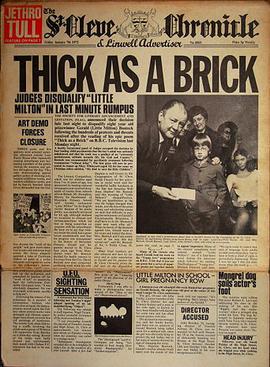
Thick as a Brick is the fifth studio album by the British rock band Jethro Tull, released on 3 March 1972. The album contains one continuous piece of music, split over two sides of an LP record, and is intended as a parody of the concept album genre. The original packaging, designed as a 12-page newspaper, claims the album to be a musical adaptation of an epic poem by fictional eight-year-old genius Gerald Bostock, though the lyrics were actually written by the band's frontman, Ian Anderson.
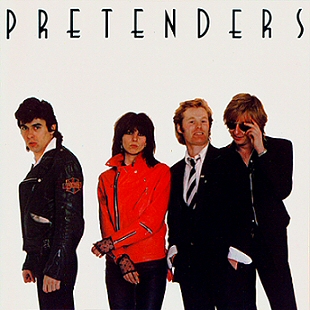
Pretenders is the debut studio album by British-American band The Pretenders, released in 1979. A combination of rock and roll, punk and new wave music, this album made the band famous. The album features the singles "Stop Your Sobbing", "Kid" and "Brass in Pocket".

The Yes Album is the third studio album by English progressive rock band Yes, released on 19 February 1971 by Atlantic Records. It was the band's first album to feature guitarist Steve Howe, who replaced Peter Banks in 1970, as well as their last to feature keyboardist Tony Kaye until 1983's 90125.

Document is the fifth studio album by American rock band R.E.M., released on August 31, 1987, by I.R.S. Records. It was the first album by the band to be produced by Scott Litt.
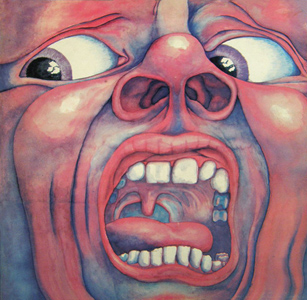
In the Court of the Crimson King is the debut studio album by English progressive rock band King Crimson, released on 10 October 1969 by Island Records. The album is one of the earliest and most influential of the progressive rock genre, where the band combined the musical influences that rock music was founded upon with elements of jazz, classical, and symphonic music.
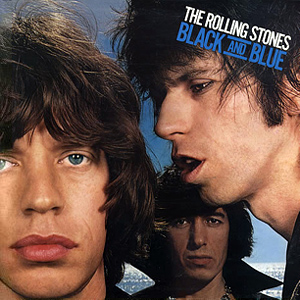
Black and Blue is the 13th British and 15th American studio album by the English rock band the Rolling Stones, released on 23 April 1976 by Rolling Stones Records.

Masque is the third studio album by American progressive rock band Kansas. The album was released in September 1975, remastered for CD in 2001, and again remastered and reissued on vinyl in 2014. The opening track, "It Takes a Woman's Love ", was remixed for release as a single but was not popular, including additional guest vocals and segments far different from the album version.

Audio-Visions is the seventh studio album by American progressive rock band Kansas, released in 1980. The album was reissued in remastered format on CD in 1996 on Legacy/Epic and again in 2011, as a Japanese import vinyl-replica CD, as well as part of the Sony/Legacy domestic boxed set, Kansas Complete Album Collection 1974-1983, which packages all of the band's original releases on Kirshner and affiliated labels CBS/Columbia.

Free as a Bird is the ninth studio album by the English rock band Supertramp, released in October 1987, and their last album of new music for A&M Records.

Fresh is the sixth album by American funk band Sly and the Family Stone, released by Epic/CBS Records in June 1973. Written and produced by Sly Stone over two years, Fresh has been described as a lighter and more accessible take on the dense, drum machine-driven sound of its landmark 1971 predecessor There's a Riot Goin' On. It was the band's final album to reach the US Top 10, entering the Billboard Album Chart on June 30, and their last of three consecutive number-one albums on the R&B chart. In 2003, the album was ranked number 186 on Rolling Stone magazine's list of the 500 greatest albums of all time.

Human is the fourth studio album by American death metal band Death, released on October 22, 1991, by Relativity Records. The album marked the beginning of a major stylistic change for Death, being more technically complex and progressive than the band's previous efforts. The lyrics are more introspective when compared to the gore-based lyrics of Scream Bloody Gore and Leprosy or the social commentary on Spiritual Healing. This new style would continue to evolve on all following Death albums. This is the only album to feature Cynic members Paul Masvidal on guitars and Sean Reinert on drums, both 20 at the time, and the first to feature bassist Steve DiGiorgio.

Grotesque (After the Gramme) is the third studio album by English band the Fall. Released on 17 November 1980, it was the band's first studio album on Rough Trade.
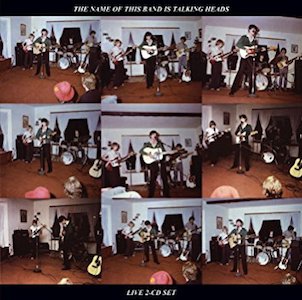
The Name of This Band Is Talking Heads is a double live album by the American new wave band Talking Heads, released in 1982 by Sire Records. The first LP features the original quartet in recordings from 1977 and 1979, and the second LP features the expanded ten-piece lineup that toured in 1980 and 1981. The album contains live versions of songs that appear on their first four studio albums: Talking Heads: 77, More Songs About Buildings and Food, Fear of Music, and Remain in Light.

Dog & Butterfly is the fourth studio album by American rock band Heart, released in September 1978, by Portrait Records, following a legal dispute with Mushroom Records over the release of the band's second studio album, Magazine, in April 1978. Dog & Butterfly peaked at number 17 on the US Billboard 200 and has been certified double platinum by the Recording Industry Association of America (RIAA). The album spawned the singles "Straight On" and "Dog & Butterfly".
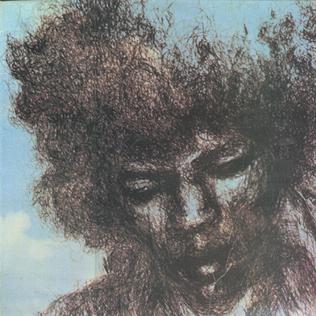
The Cry of Love is a posthumous album by American rock singer-songwriter and guitarist Jimi Hendrix. Recorded primarily in 1970, it features new material that Hendrix was working on for his planned fourth studio album before his death later that year. While most of the songs were included on proposed track listings by Hendrix, the final selection was made by recording engineer Eddie Kramer and drummer Mitch Mitchell, with input from manager Michael Jeffery. Hendrix, Kramer, and Mitchell are credited as the album's producers, with Jeffery as the executive producer.

A Different Kind of Tension is the third studio album by English punk rock band Buzzcocks. It was released in September 1979 by record label United Artists.

A Night at Birdland Vol. 2 is a 1954 release by jazz drummer Art Blakey, and a quintet which featured Clifford Brown, Lou Donaldson, Horace Silver and Curley Russell. It was first released by Blue Note Records as a 10" LP. Two years later, the three 10" LPs in the set were reissued as 2 12" LPs; the 12" Vol. 2 is BLP 1521. Two of the three tracks of the original 10" Vol. 2 were included in the 12" Vol. 1. The 12" Vol. 2 incorporates all three tracks from the 10" A Night at Birdland Vol. 3 plus a previously unreleased alternate take of "Quicksilver."

Roots & Herbs is a jazz album by Art Blakey & the Jazz Messengers, recorded in 1961 at the same sessions which produced The Freedom Rider, but not released on the Blue Note label until 1970. The CD reissue features three alternate takes, two of which originally released in 1979 on Pisces.
The Muffins were an American Maryland-based progressive rock/avant-jazz group. They were formed in Washington, DC in the early 1970s and recorded four albums before disbanding in 1981. In 1998 the group reformed and recorded a further five albums and a DVD. The Muffins played at Symphony Space on Broadway in NYC with Marion Brown in 1979, and also performed at a number of festivals, starting with the ZU Manifestival in New York City in 1978, The Villa Celimontana festival in Rome, Italy in 2000, two appearances at Progday in 2001 and 2002, NEARfest in 2005, and the "Rock in Opposition" festival in France in 2009. In 2010, the Muffins headlined at Progday, making a third appearance at this long running festival.



















